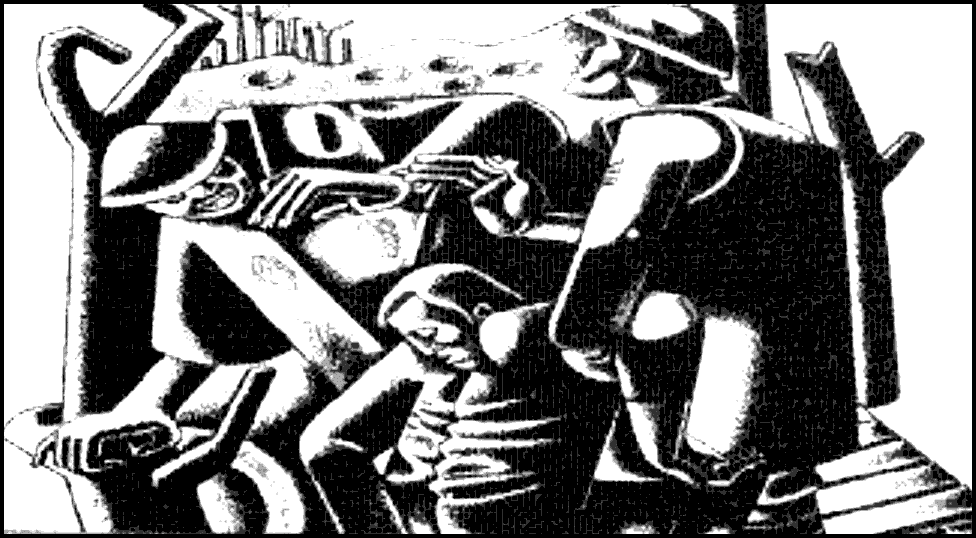
This Man's Army
A War in Fifty-Odd Sonnets
John Allan Wyeth
(South Carolina)

Wow, I think. Sonnets --- my favorite poetic form. And sonnets on World War I: my favorite war.I am thinking Shakespeare in the trenches, the whiff of phosgene, the Very Lights glaring down, the crazy coils of barbed wire, tanks thrashing through the mud, young men fallen into shell holes, frothing as they drown in a sludge of horse and rat carcasses and human body parts. Certainly a switch from the dark perfumed lady, the elegant courtier who may be Shakespeare's lover.
There are fifty-five sonnets by the American John Allan Wyeth, all written shortly after the end of the war. And they do deal with The War, or at least, its less smelly parts: men fighting, men gambling, men drinking, men on trains for the wounded. But these are a far cry from reality, the moil of the trenches.
In addition, the poems themselves are quite odd. This is "Party" at Fromereville:
... 'Ashes to ashes and dust to dust' ...
and as we crowd in, laughter, and the beat
of voice and piano as the riot dies
away ---
'If the whiskey don't get you then the cocaine must' ...Or, at Huppy, "The Life of the Party:"
"Tout le monde cognac
toot sweet --- O Boy you're in the army now --- "
'You're not behind the plow --- You'll never get rich' ---Most odd indeed.
This versification is not what I would call poetry, but rather ... a recording, a rhythmical report on the way WWI was spoken and heard by those who lived through it in the back-trenches, and in the towns, traveling about from company to company as Wyeth did (he was a member of the American general staff, serving as a French interpreter).
The editor, Dana Gioia, himself a poet, tells us that we have in these sonnets a new rhyme scheme, unlike any other in the form's seven-hundred-year history --- abcd abcd abe cde. Thus, carefully sculpted verses according to exotic rules. About the war that for sheer violence and virulence, broke all the rules.
The editor's introduction is perhaps the most interesting part of the entire volume. He tells us about Wyeth's life, his later painting, that he might have been gay, that he was a recluse until he died in 1981. Gioia says that This Man's Army is "not a masterpiece." True. Compared to Wilfred Owen, Siegfried Sassoon, T. E. Hulme, Rupert Brooke --- Wyeth is a piece of cheese. Soldiers playing craps; country boys drunk in French cafés; popular songs of the day: "Yaaka Hula Hickey Dula;" Les Américains --- all these could be poetry. But This Man's Army, Wyeth's only venture in the form, is not art, not even street (or trench) art. It's a mere curiosity.
Still, if you are interested in English and American poetry that sprouted from the body (or bodies) of WWI, Gioia's Introduction gives you a worthy beginning.
--- Pamela Wylie